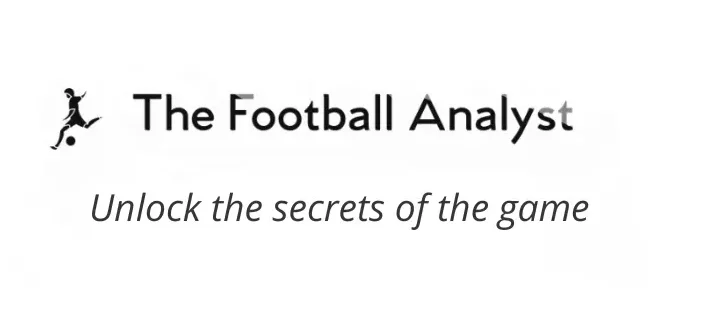Introducing Andoni Iraola’s tactical masterclass at AFC Bournemouth, this analysis delves deep into the strategic framework crafted by the esteemed coach. Known for his astute understanding of the game and meticulous attention to detail, Iraola’s influence on Bournemouth’s playing style is profound. From defensive solidity to expansive attacking movements, this article uncovers the tactical intricacies that define Iraola’s tenure at the helm of AFC Bournemouth. Join us as we dissect the tactical blueprint behind Bournemouth’s journey under the guidance of Andoni Iraola.
Build-up
Low Build-up
Iraola sets his team up in a 1-4-3-3 formation in the low build-up, with one number-six and two high number-eights.
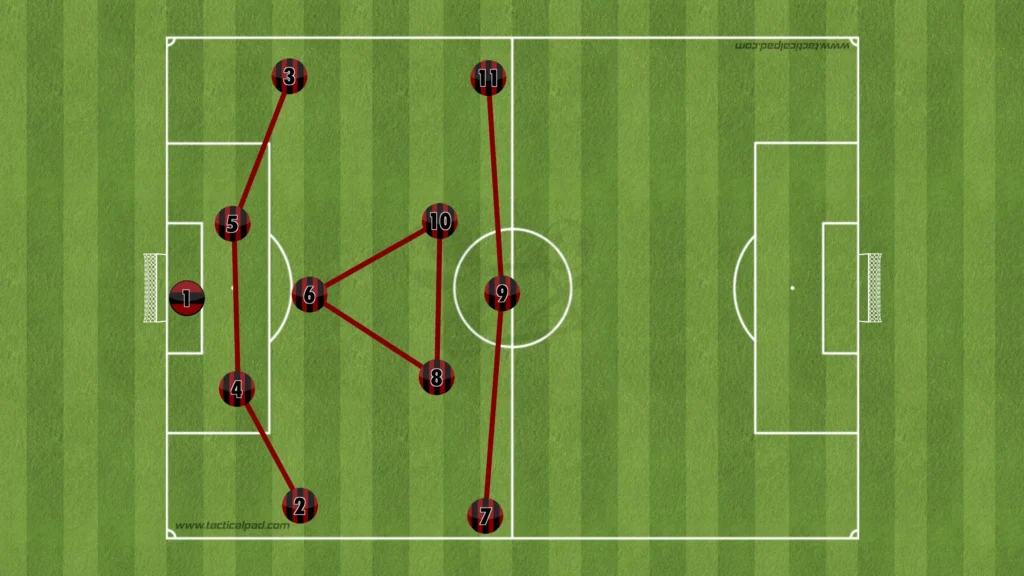
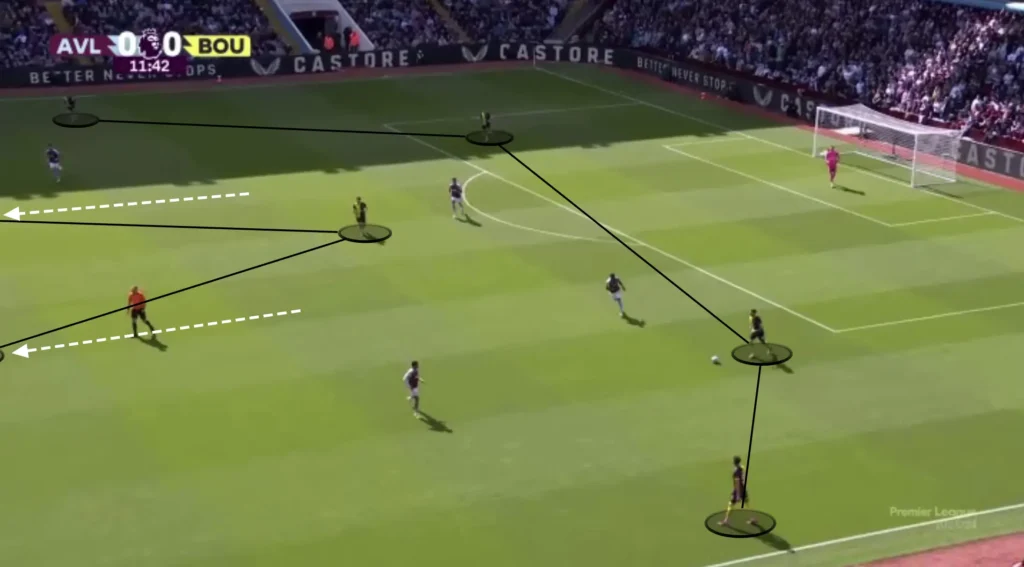
Bournemouth often use fast and vertical long balls in their low build-up. Therefore, they position their number-eights high and attackers centrally, giving them a higher chance of winning the first and second balls.
High Build-up
In the high build-up, Bournemouth stay in the 1-4-3-3 formation, still keeping the number-eights very high, almost turning it into a 1-4-1-5 formation.
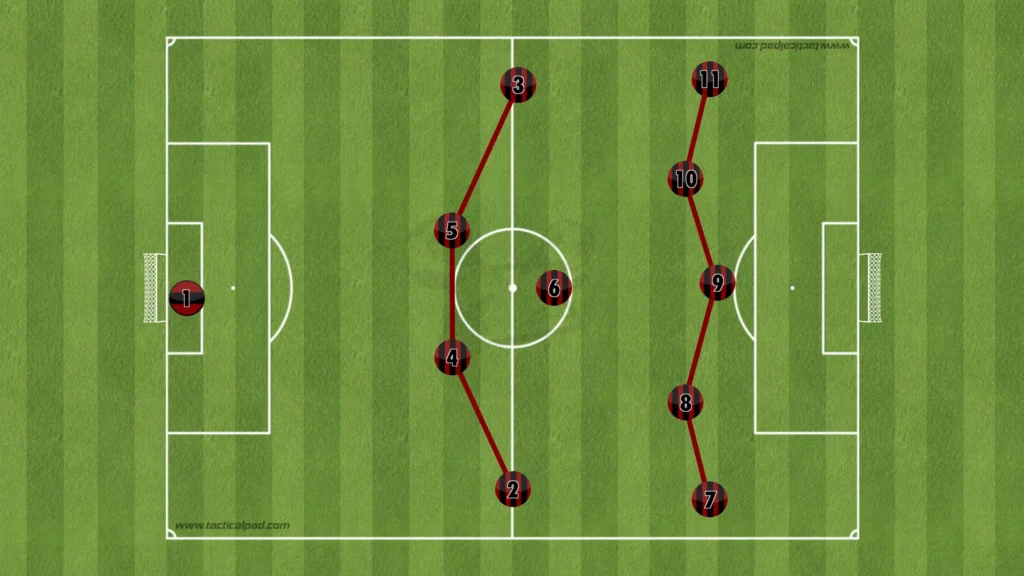
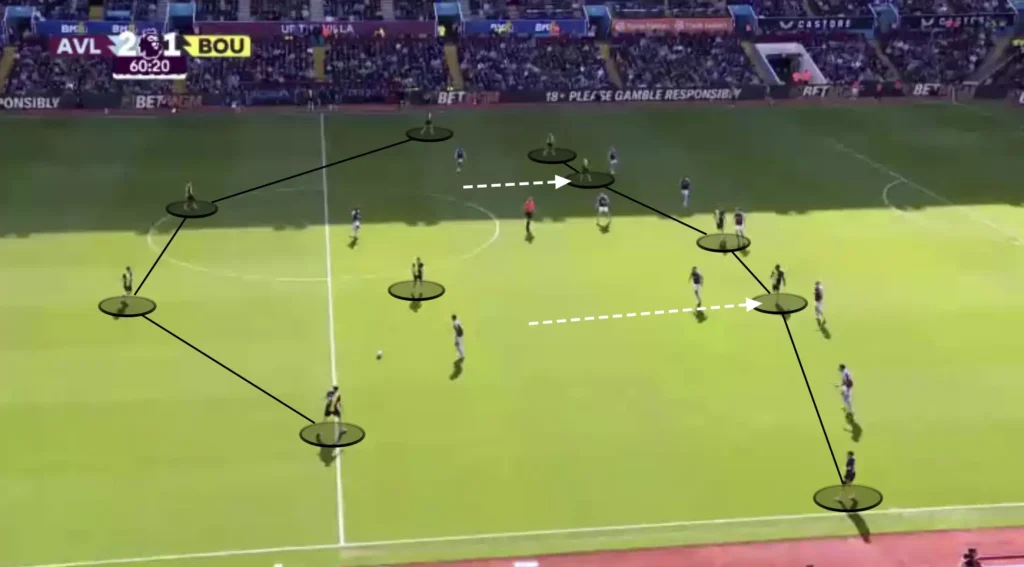
Finding the Pockets
Bournemouth always try to find the number-eights in the pockets, who look to position themselves between the opposition players. The defending players do not know who should mark the Bournemouth number-eight, which usually results in no one doing it. Bournemouth will look for passes from the back or the wing, breaking lines and finding a number-eight who will turn and drive at the defense.
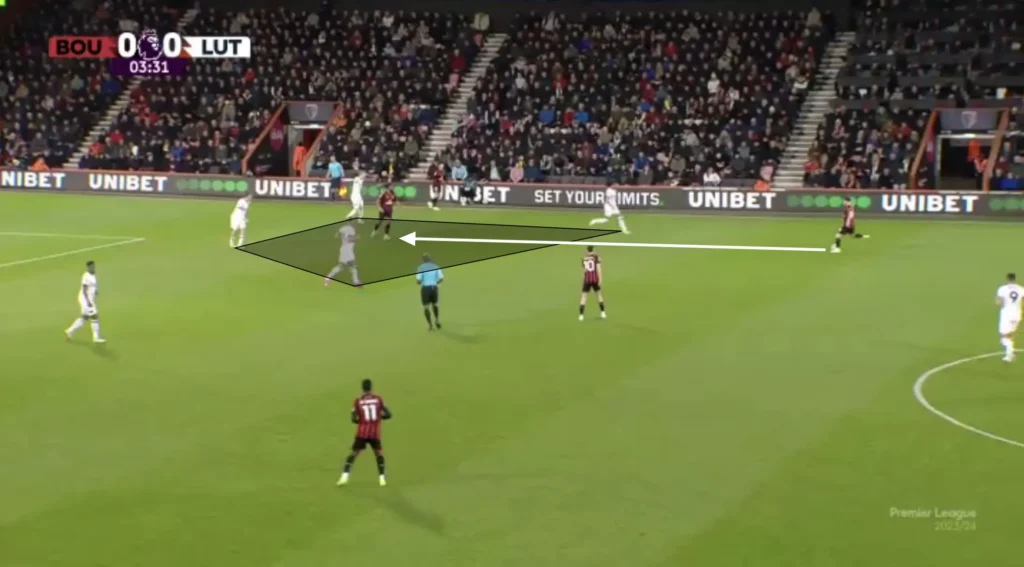
They can also find other players in the pockets. Sometimes when the number-eight drops, the winger or number-six will make a run into the pocket and receive a pass from a Bournemouth defender. The dropping number-eight will have pulled away an opposition midfielder, which opens the space in the midfield, giving the Bournemouth player receiving the ball more time and space.
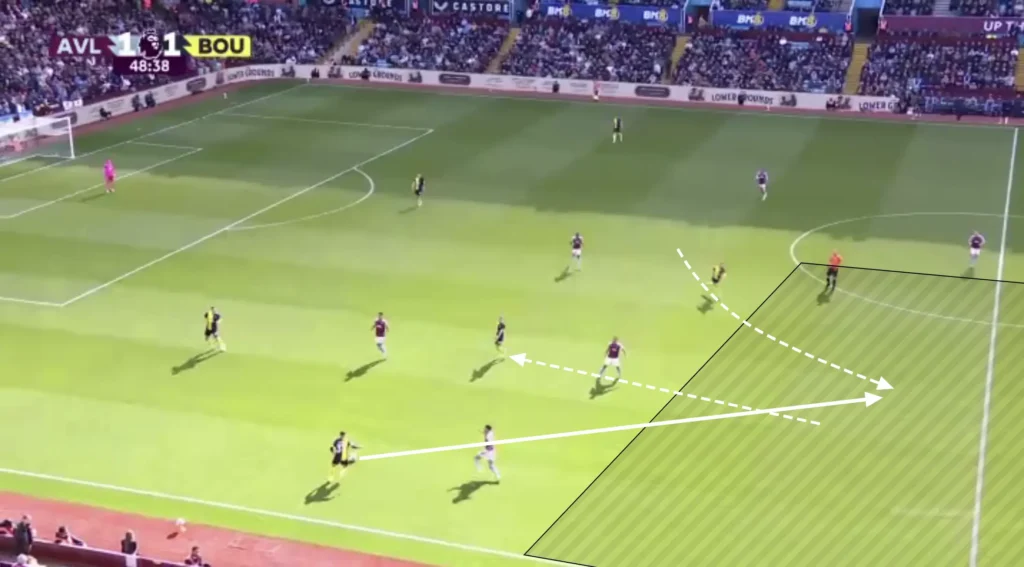
Pushing up the Fullback
The Bournemouth fullbacks are great at joining in the attacks. When the center-backs have the ball, the fullbacks often push up next to the winger. This creates a 2v1 with the Bournemouth winger and fullback against the opposition fullback, which could even turn into a 3v1 if the number-eight joins in. Bournemouth exploit this numerical superiority with long balls from the back aimed at the opposition fullback, usually winning the first or second ball, allowing them to progress the play forward.
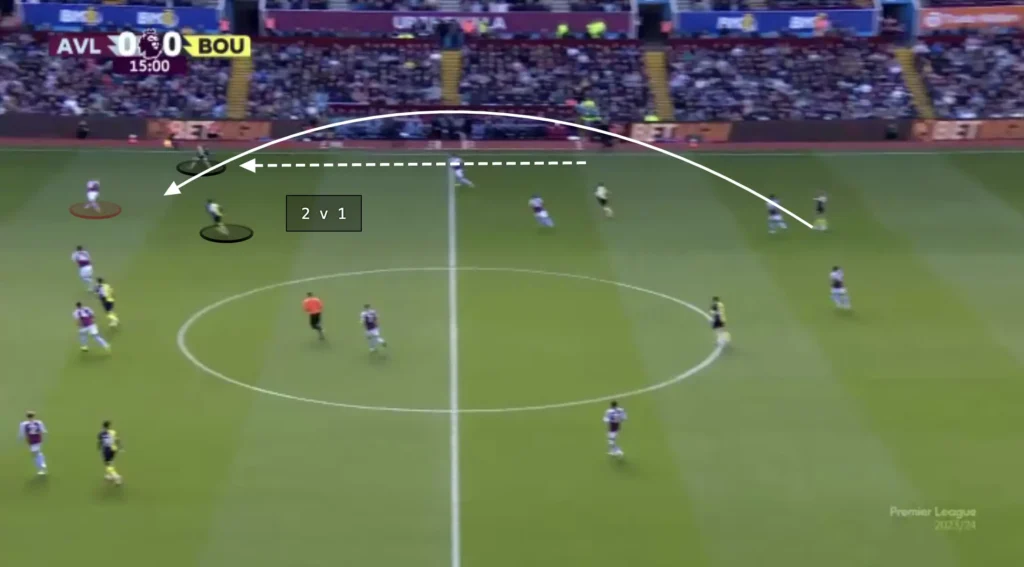
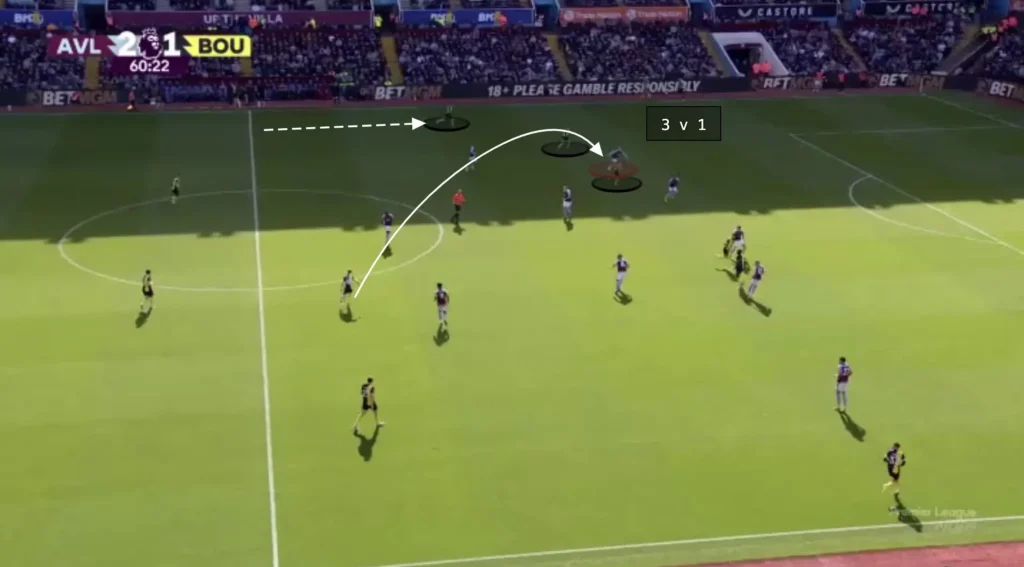
Inverting the Fullback
Another rotation involving the fullback that Bournemouth use is inverting the fullback to open the passing lane to the winger. When a center-back has the ball, the ball-side fullback sometimes inverts into the midfield. This drags the opposition winger inside, which opens the passing lane from the center-back to the winger. The ball will be played to the winger, who can attack the opposition fullback and combine with the Bournemouth number-eight to create a 2v1.
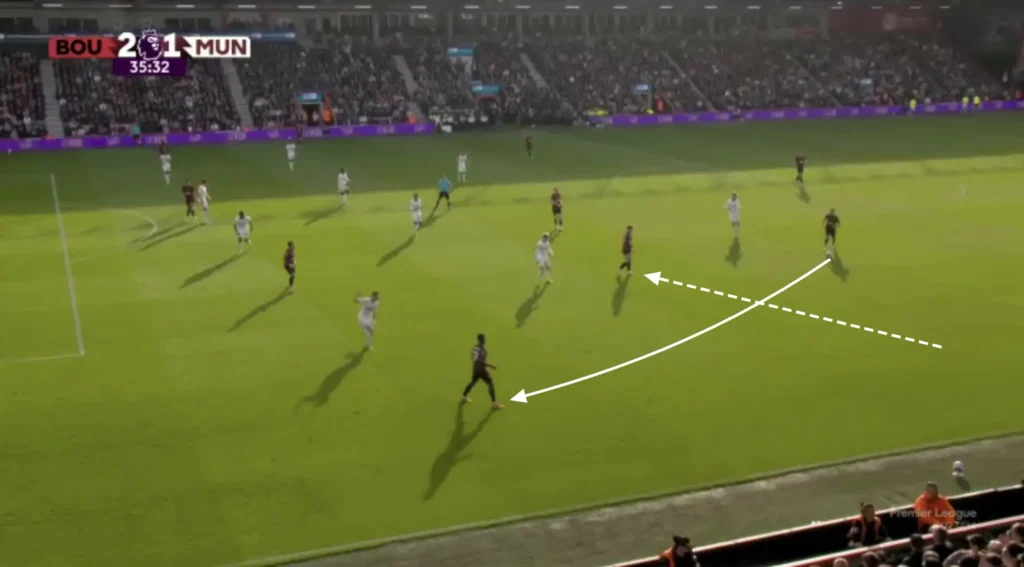
Balls in Behind
Bournemouth do not shy away from using the early through-ball in behind the opposition’s backline. The attackers constantly make runs in behind when the Bournemouth midfielders or defenders have the ball. This constant threat prevents the opposition from playing with a high backline and closing the space between the lines. Instead, they have to drop the backline and protect the space in behind, opening the space in the middle for the Bournemouth midfielders to exploit.
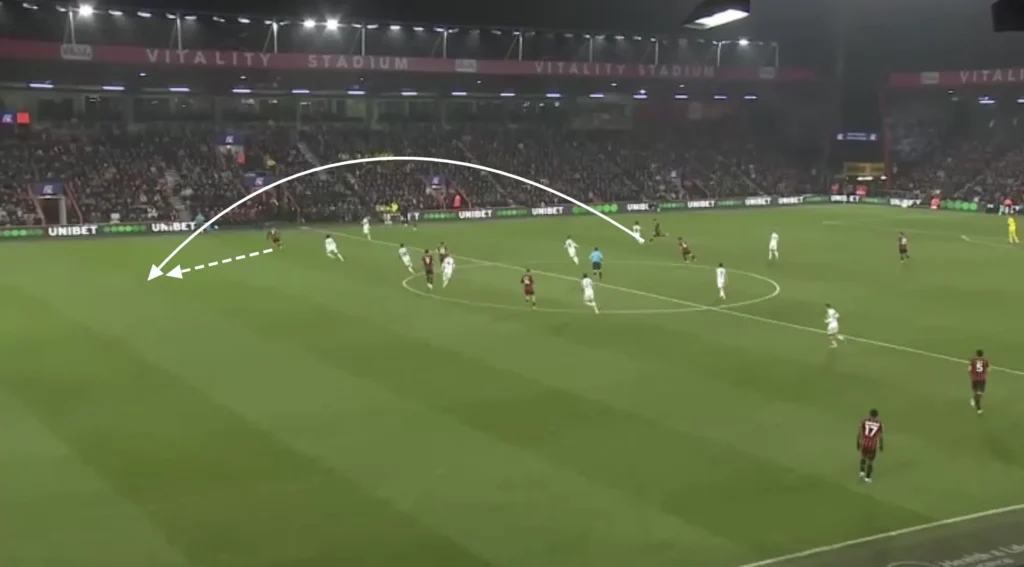
Numerical Advantages
Another massive aspect of Bournemouth’s high build-up is their ability to create numerical advantages against the opposition’s defensive line. When the number-eights push up high, a front five gets created. Their front five naturally becomes numerically superior against a back four, which they are great at taking advantage of.
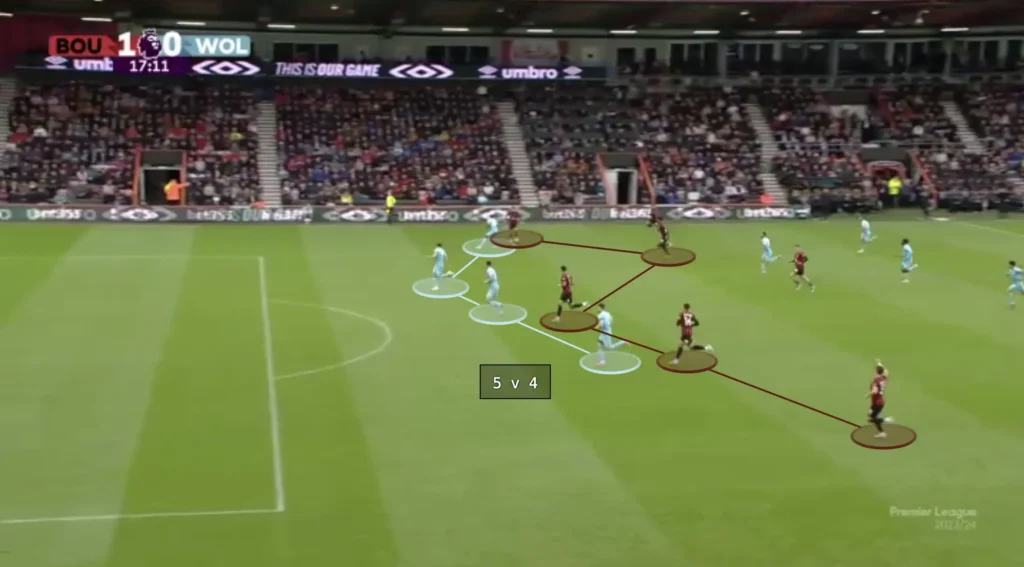
When the defending team is positioned on one side, the weak-side fullback becomes vulnerable to the switch of play due to the 1v2 against Bournemouth’s winger and number-eight. Iraola’s team capitalizes on this by getting the ball to the winger and creating many opportunities from 2v1 situations on the wing and in the half-spaces. The number-eight often makes a run in behind, forcing the fullback to follow the run, which opens the space for the winger.
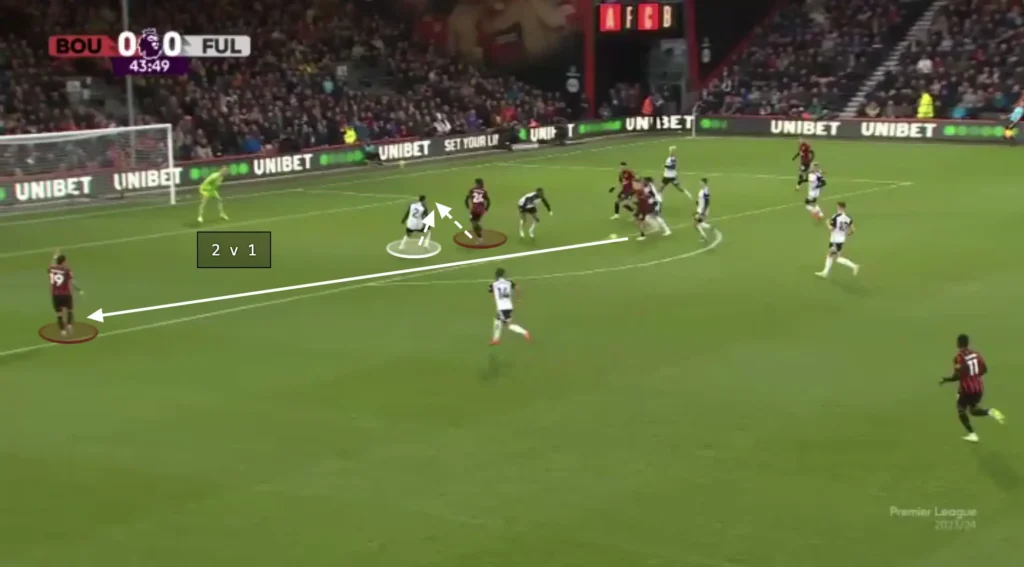
Final Third
Attacking the Half-Space
Bournemouth is a great team in the final third. They always create many chances, mainly by attacking the space between the opposition center-back and fullback. They primarily do this from the wide areas with underlaps from the number-eights or sometimes the fullbacks.
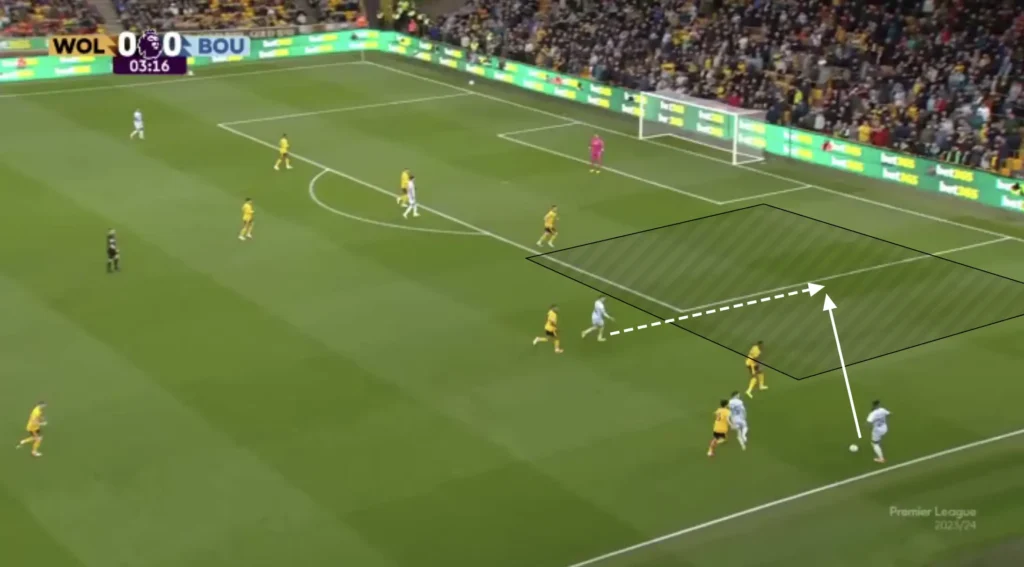
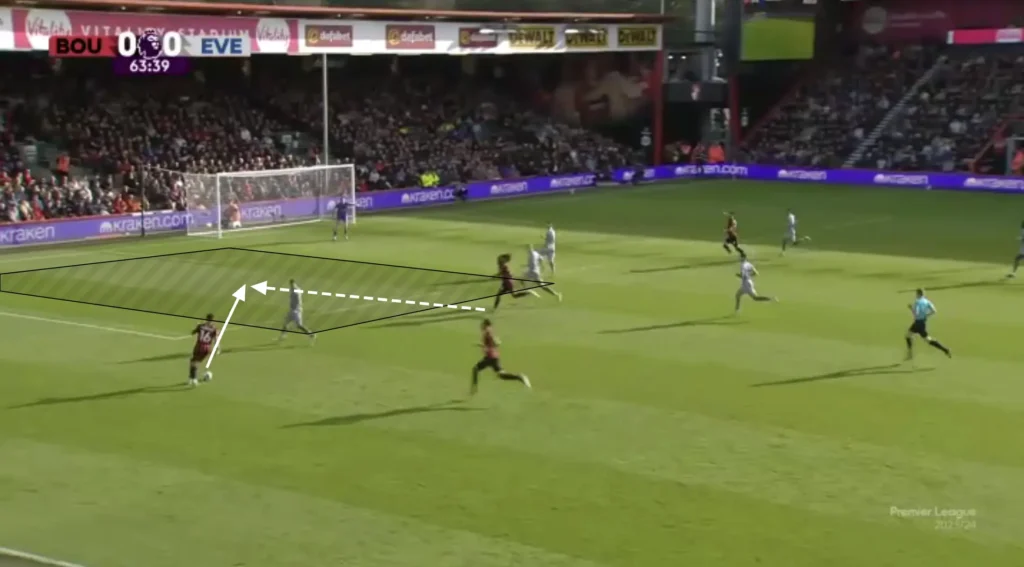
The winger can either play the ball to the underlapping player, who can cross to a teammate in the box, or take the ball inside to combine with an attacker or shoot.
Iraola’s team also exploits the space between the center-back and the fullback by playing through-balls from the midfield or backline to a running winger or number-eight.
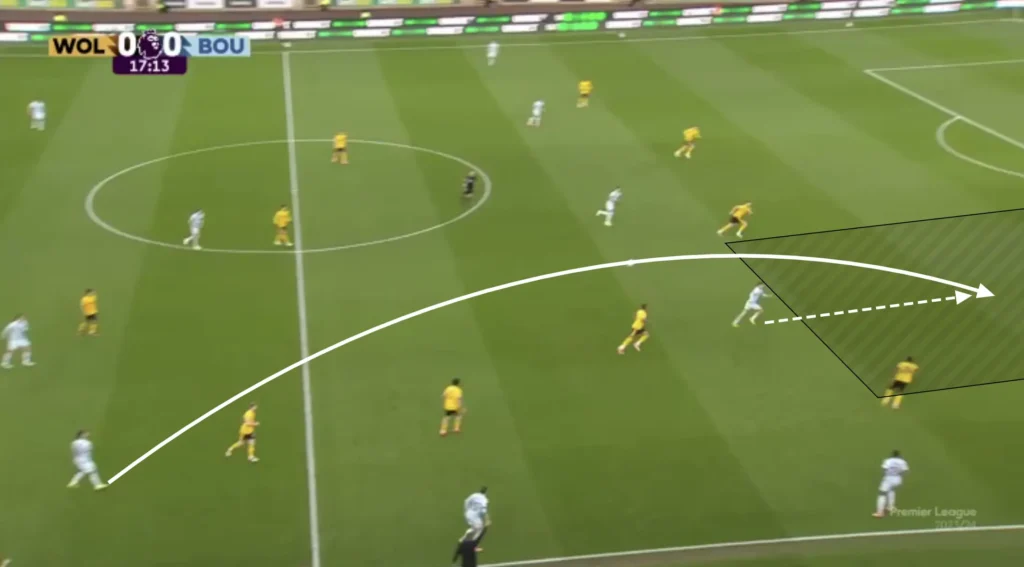
Overlaps
Bournemouth also use overlaps to produce opportunities in the final third. When the winger gets the ball, a Bournemouth player quickly makes the overlap, creating a 2v1 on the wing. If the opposition fullback drops to cover the overlapping run, the winger could cut inside, taking a shot or combining with a midfielder. If the fullback covers the center, the ball can easily be played to the overlapping player, creating a crossing opportunity.
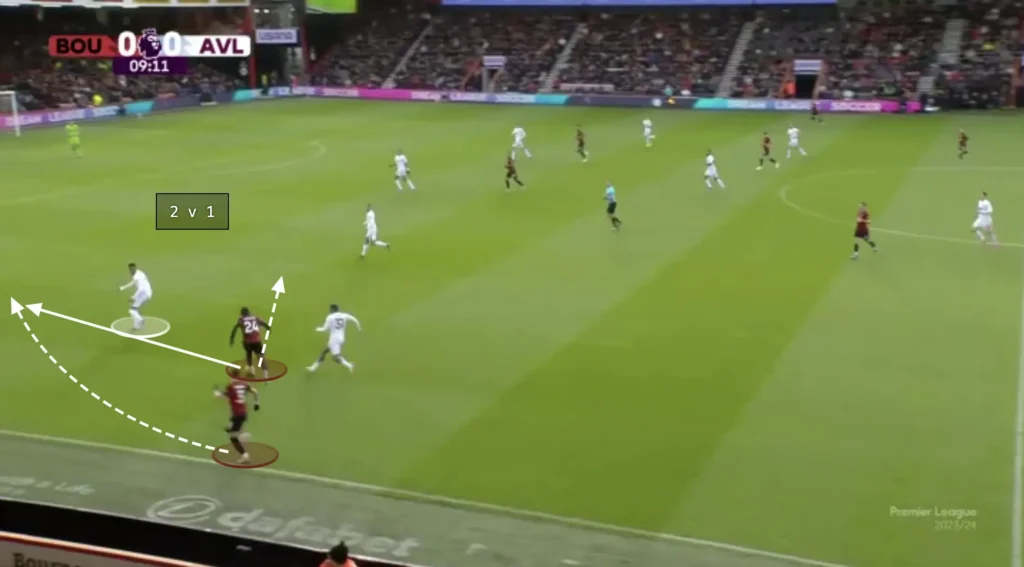
Many Players in the Box
The number-eights and wingers always look to make runs into the box when the ball is in the final third, often getting four or five players into these areas to create overloads. The numerical advantages in the box force the defending team to make decisions and leave some players open.
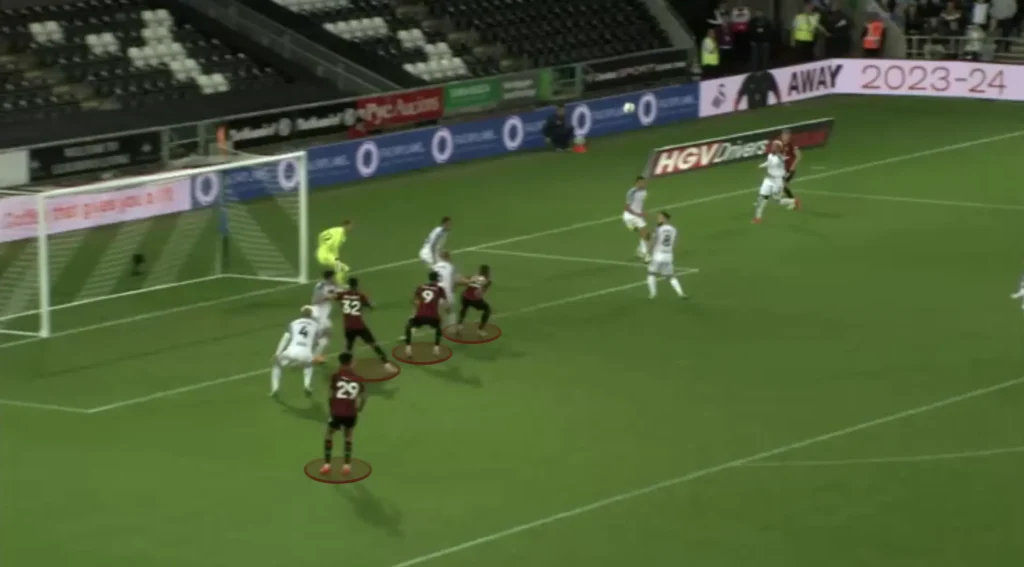
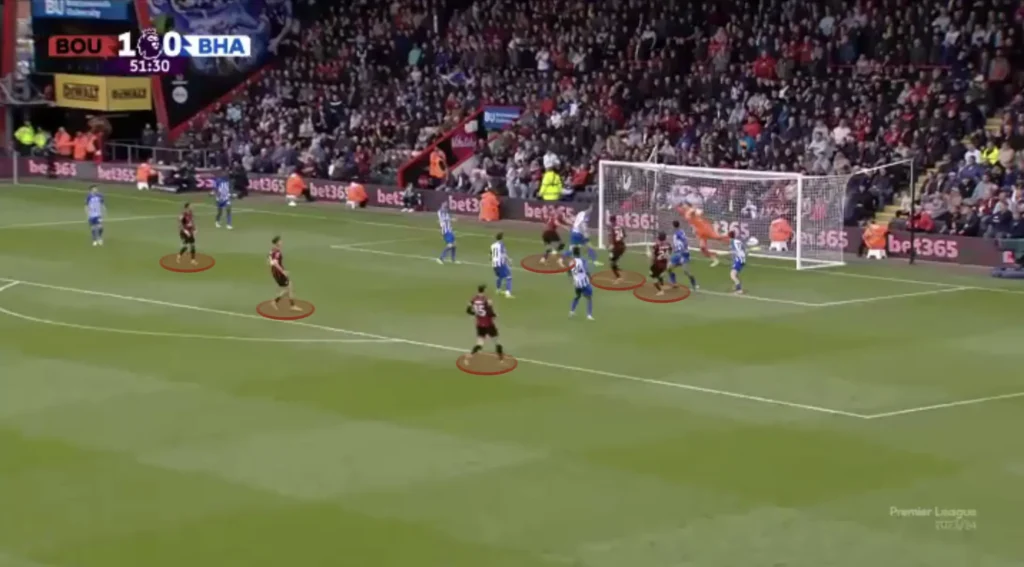
Bournemouth score many of their goals from crosses to the wingers at the back post. The opposition fullback will often be preoccupied with a Bournemouth number-eight, which leaves massive space at the back post for the wingers to attack.
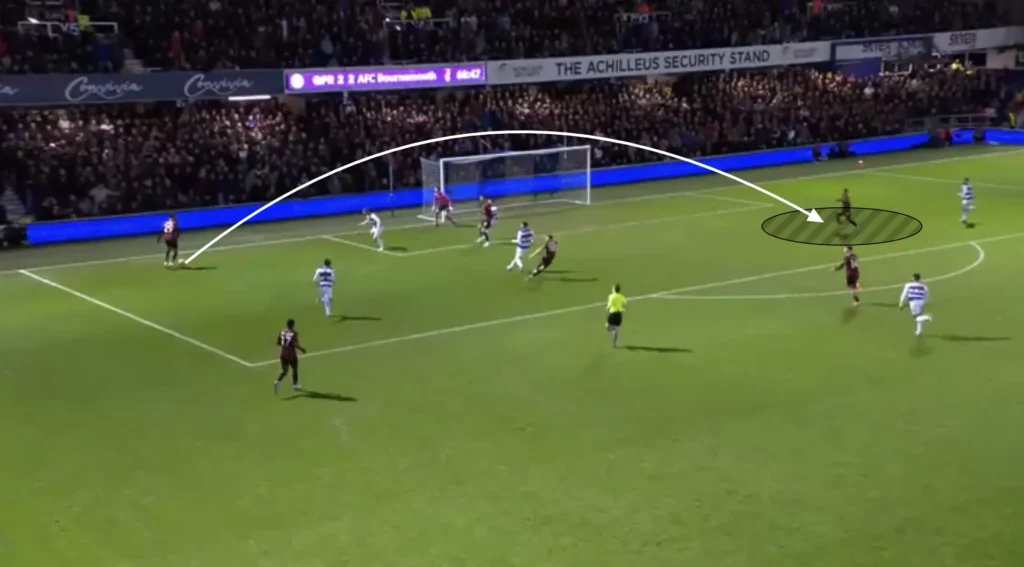
Iraola also positions many Bournemouth players outside the box, ready for the second balls and cut-backs. They always succeed in pushing down the opposition’s defense, which opens the space in front of the backline. Bournemouth will often find their midfielders in these spaces, who can shoot or combine with an attacker to create goalscoring opportunities.
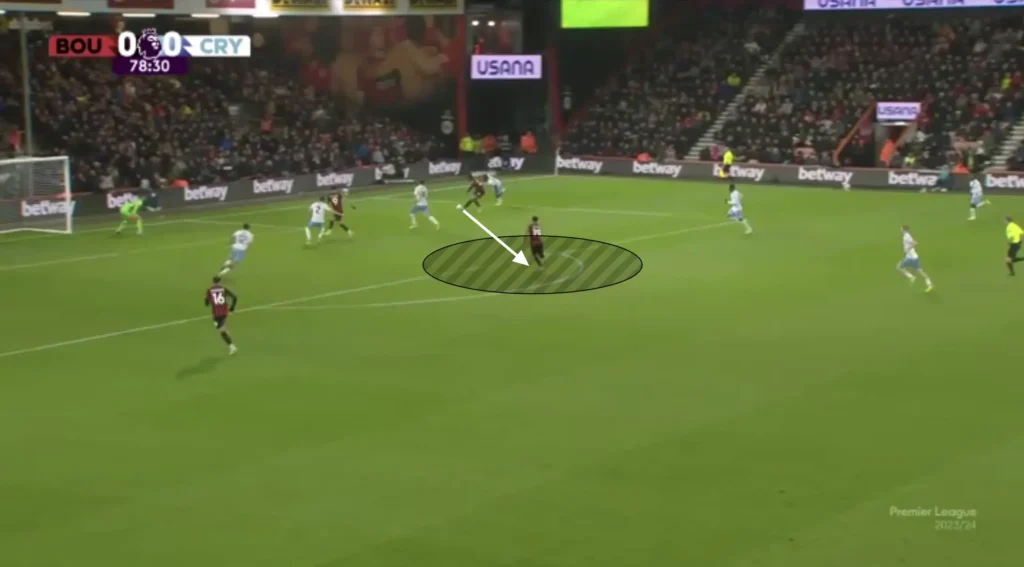
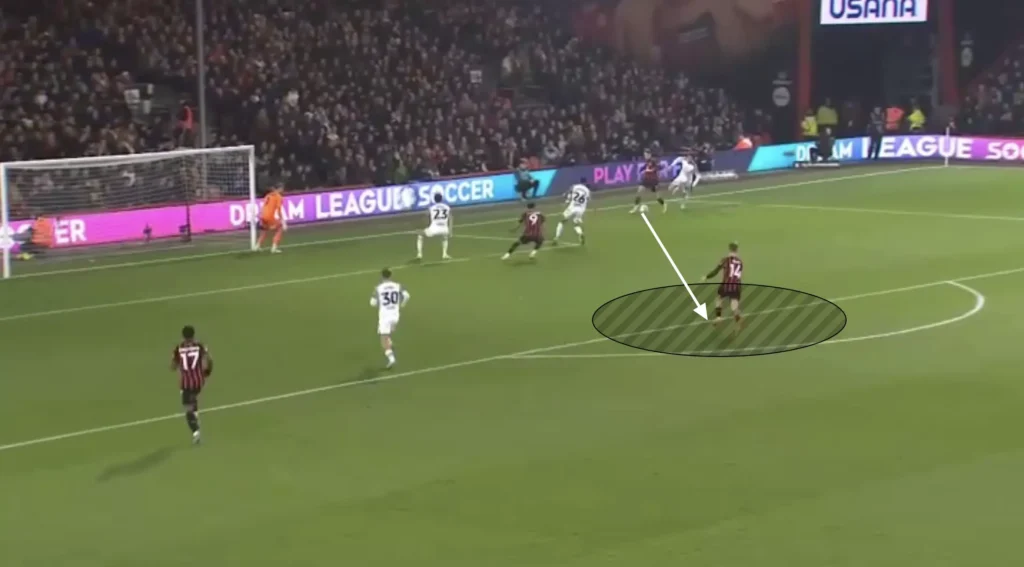
Defending
High Press
Iraola places much value in being aggressive without the ball. This shows in Bournemouth’s high pressure. Iraola usually wants his team to go man-to-man and intensely press the opposition.
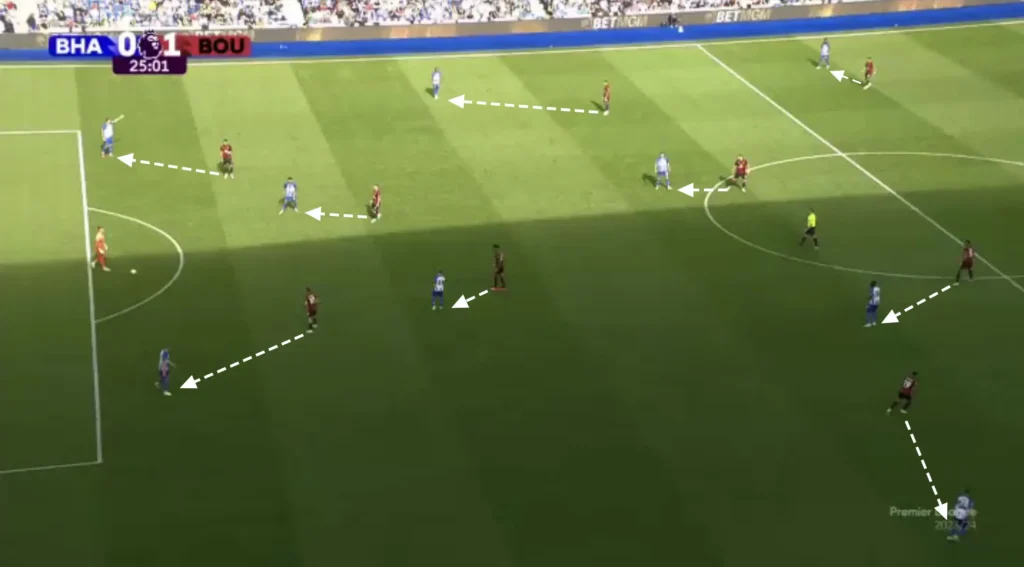
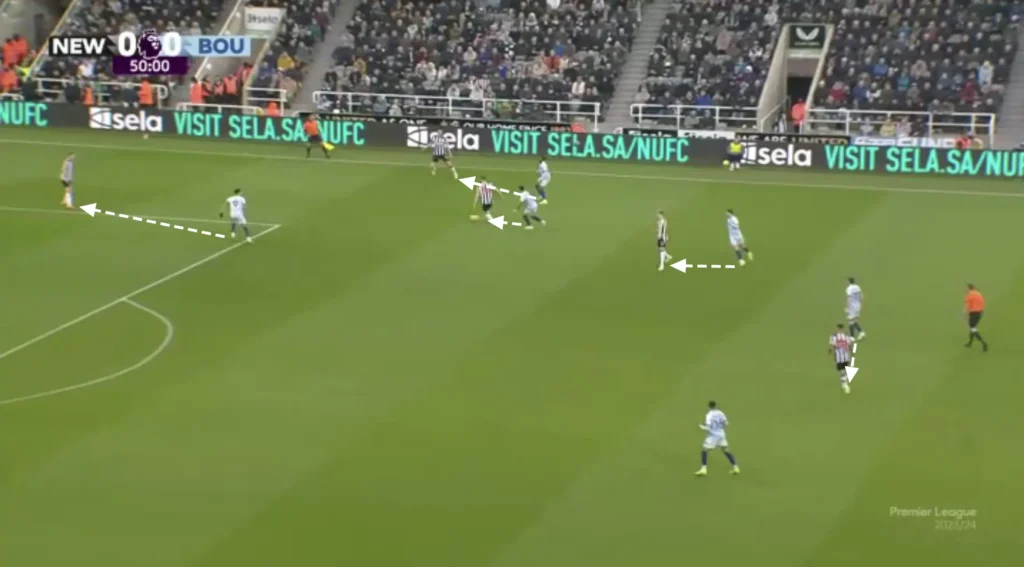
They almost use their high press as an attacking threat, scoring many goals from winning the ball high up the pitch.
Low Press
Iraola’s Bournemouth uses a 1-4-4-2 formation in the low press. They look to set up in a mid-block, always trying to close the center, forcing the opposition out wide.
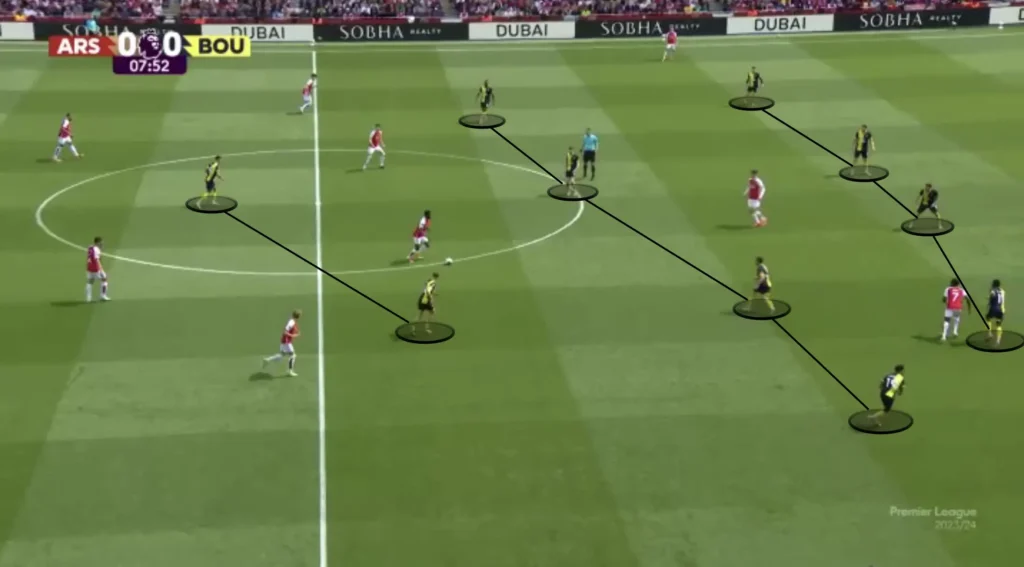
They always look to squeeze the pitch when defending. This means constantly pushing the team up as much as possible. Every time the opponent plays a slow, sideways pass or a back pass, Bournemouth’s first line of pressure pushes up, with the rest of the team following to stay compact. When the next pass comes, they push up even more, forcing the opponent back even more. They do this because it pushes the opponent further away from the Bournemouth goal, making it harder to create chances.
Transitions
Defensive Transitions
Positioning many players centrally, creating a numerical advantage in the midfield, creates good conditions in defensive transitions. Many players close to the ball after losing possession means that many players can work towards regaining possession. Therefore, Bournemouth often successfully regains possession directly after losing it.
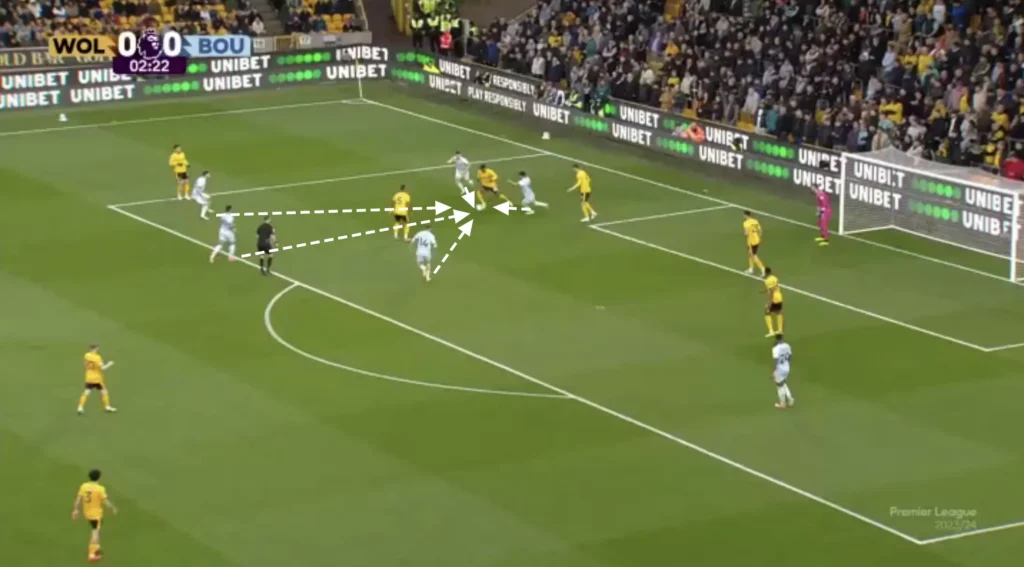
Offensive Transitions
Andoni Iraola also wants his team to counterattack in their offensive transitions. They do this with a high tempo, often attacking the spaces between the center-backs and fullbacks.
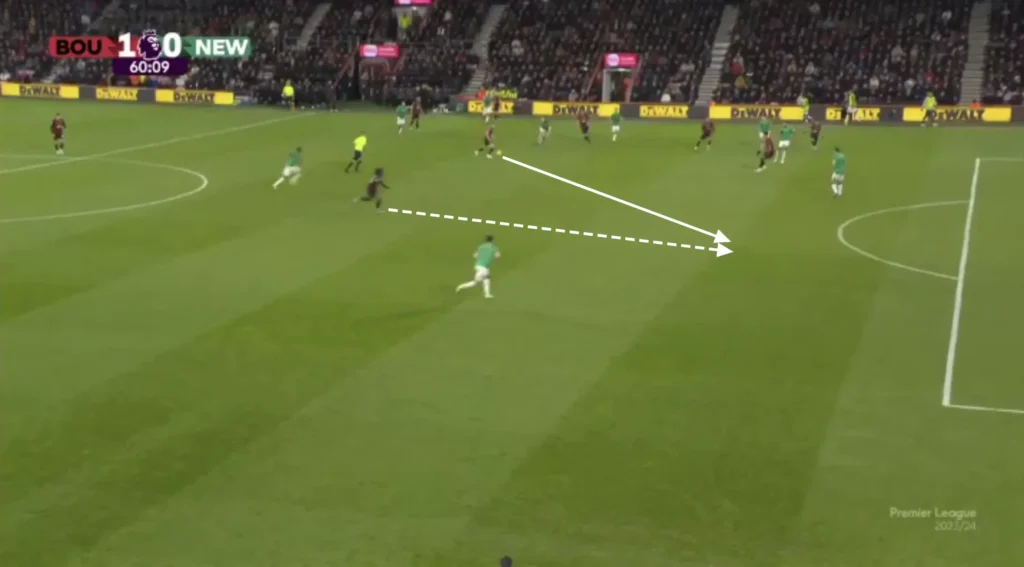
In addition, keeping many players centrally while defending enables them to incorporate more players into the counterattacks.
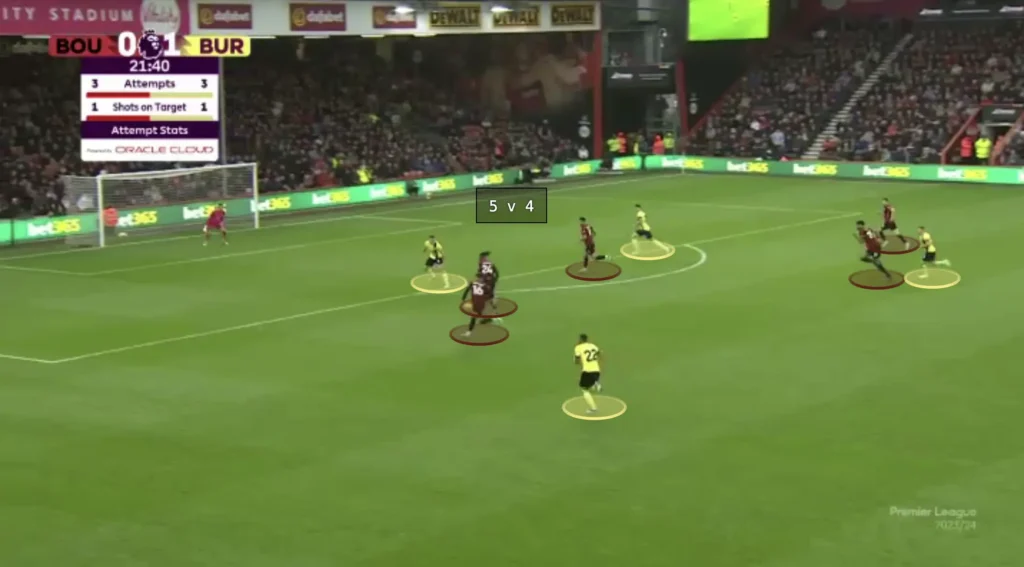
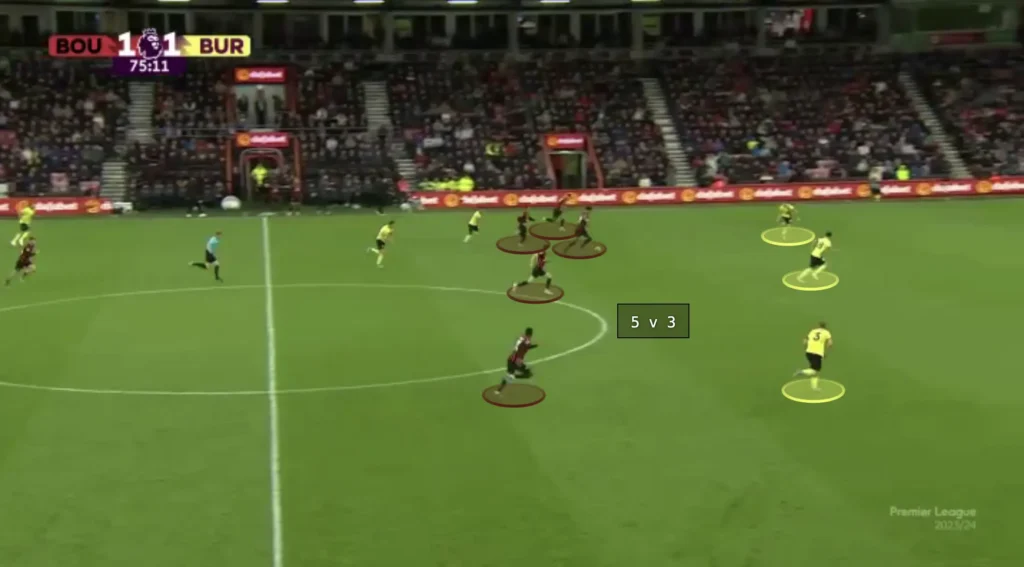
Final Thoughts
In wrapping up this tactical analysis of Andoni Iraola’s tenure at AFC Bournemouth, it’s evident that his strategic prowess has significantly impacted the team’s playing style and performance on the pitch. From the meticulous build-up play to the cohesive defensive structure, Iraola’s influence is palpable throughout.
Under Iraola’s guidance, AFC Bournemouth has showcased a blend of offensive creativity and defensive solidity, demonstrating a commitment to a well-rounded approach to the game. The adaptability in formations and the emphasis on player movement highlight Iraola’s tactical knowledge and ability to maximize the team’s potential.
As AFC Bournemouth continues to evolve under Iraola’s leadership, the tactical insights gleaned from this analysis offer a glimpse into the club’s promising trajectory. With Iraola at the helm, the Cherries are poised to navigate the challenges of the competition with strategic intelligence and a commitment to excellence, promising an exciting journey for players and fans alike.
